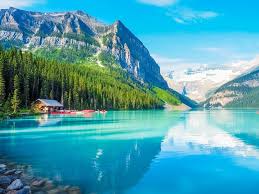Full Pane: Lakes of the Eastern Forest, Aube (France 2022)
Lakes of the Eastern Forest, Aube (France 2022)
17 October (France ) within release Lakes of the Eastern Forest, Aube goes into circulation Full Pane Lakes of the Eastern Forest, Aube face value 15*1.16 Euro
| Full Pane Lakes of the Eastern Forest, Aube in catalogues | |
|---|---|
| Colnect codes: | Col: FR 2022.10.17a |
Full Pane is vertical format.
Also in the issue Lakes of the Eastern Forest, Aube:
- Stamp - Lakes of the Eastern Forest, Aube face value 1.16;
- Full Pane - Lakes of the Eastern Forest, Aube face value 15*1.16;
Full Pane Lakes of the Eastern Forest, Aube it reflects the thematic directions:
Birds (Aves), a subgroup of Reptiles, are the last living examples of Dinosaurs. They are a group of endothermic vertebrates, characterised by feathers, toothless beaked jaws, the laying of hard-shelled eggs, a high metabolic rate, a four-chambered heart, and a strong yet lightweight skeleton. Birds live worldwide and range in size from the 5 cm (2 in) bee hummingbird to the 2.75 m (9 ft) ostrich. They rank as the class of tetrapods with the most living species, at approximately ten thousand, with more than half of these being passerines, sometimes known as perching birds. Birds are the closest living relatives of crocodilians.
A lake is a naturally occurring, relatively large and fixed body of water on the Earth's surface. It is localized in a basin or interconnected basins surrounded by dry land. Lakes lie completely on land and are separate from the ocean, although they may be connected with the ocean by rivers, such as Lake Ontario. Most lakes are freshwater and account for almost all the world's surface freshwater, but some are salt lakes with salinities even higher than that of seawater. Lakes vary significantly in surface area and volume.
Tourism is travel for pleasure or business; also the theory and practice of touring, the business of attracting, accommodating, and entertaining tourists, and the business of operating tours. Tourism may be international, or within the traveller's country. The World Tourism Organization defines tourism more generally, in terms which go "beyond the common perception of tourism as being limited to holiday activity only", as people "traveling to and staying in places outside their usual environment for not more than one consecutive year for leisure, business and other purposes". Tourism can be domestic or international, and international tourism has both incoming and outgoing implications on a country's balance of payments. Today, tourism is a major source of income for many countries, and affects the economy of both the source and host countries, in some cases being of vital importance.



